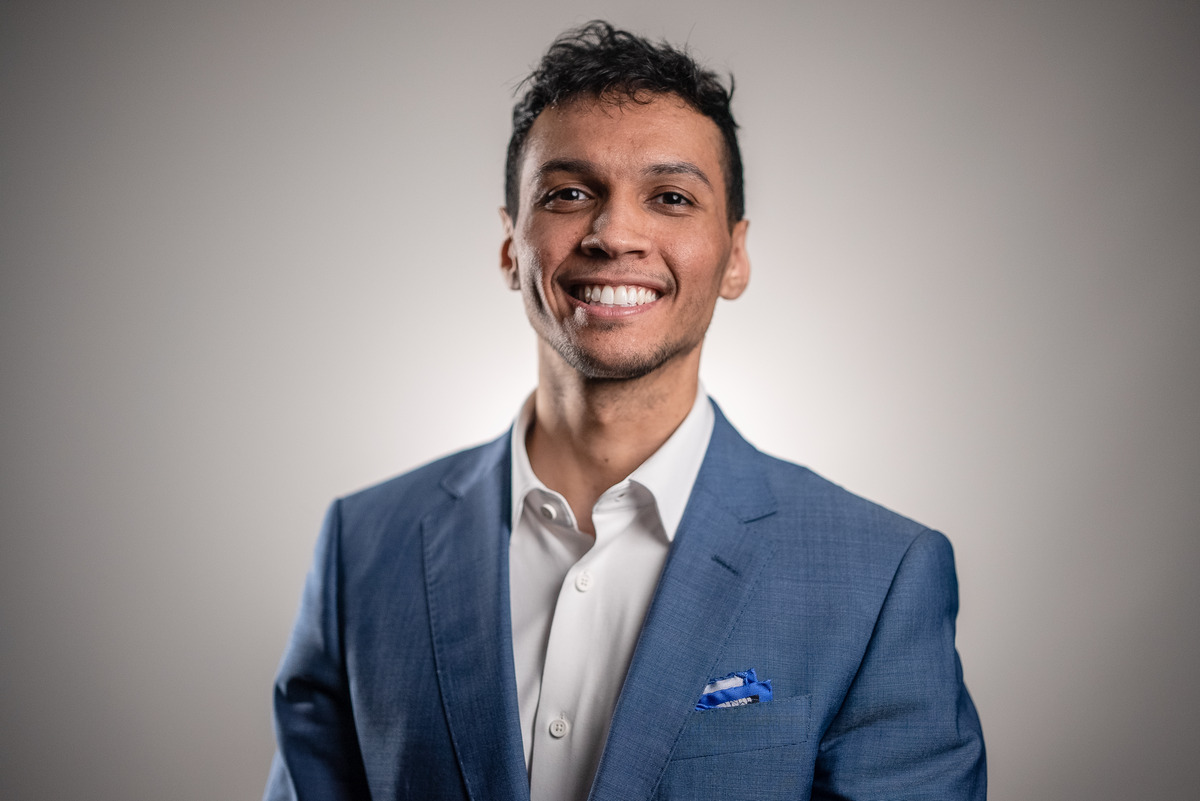
Walid Halty, a serial entrepreneur in the climate tech space, has come a long way since his humble beginning. Halty’s parents emigrated to the U.S. from Morocco and were fortunate enough to secure government housing. The oldest of five children, Halty remembers his childhood home being small but filled with a lot of love. Although Halty’s parents hoped he would become a doctor, he ultimately forged a different path: one where he’d run a $41 million company by age 23.
Growing up in Greater Boston, Halty excelled at school and was often at the top of his class. He remembers studying calculus as a sixth grader on top of his normal classes, and in high school, he took over a dozen Advanced Placement courses. On weekends, he attended Saturday school to learn Arabic.
Halty’s big break
Halty chose to drop out of college at the beginning of his sophomore year to help provide for his family. “I was selling iPhones, selling flowers on Valentine’s Day, figuring out a way to make money,” he recalls. He finally caught a break after connecting with a friend who was in sales at SolarCity—a company that Tesla acquired in 2016 for $2.6 billion. Halty, who was 18 at the time, managed to secure an internship and hoped to be hired.
Less than two months later, he was. Halty soon climbed the ranks of SolarCity’s top-performing salespeople. This was no small feat, given that there were about 10,000 sales reps at the time. He remembers making $20,000 in his first month, which was more than he had previously made in an entire year. “At first, it was about money,” he shares. “Not in a selfish way. It was like, ‘I gotta find a way to figure this out because it’s more than me.’”
Halty credits much of his early success to luck and being in the right place at the right time. “I was lucky that it was solar,” an industry that is also doing good for the world, he says. “I could have been selling jets…. But it was figuring out a way to apply myself right and earn enough money that I felt like I could start helping my family.”
Colossus and Monalee
In 2017, Halty founded Colossus (formerly Dvinci and later acquired by PX in 2023), a marketplace that helped businesses sell more solar. In addition to making clean energy more affordable and accessible to homeowners, the company donated 10% of its profits to charity each year and contributed to educational scholarships.
Halty’s newest venture is Monalee, a climate tech company that is accelerating home solar, storage and electrical vehicle charging adoption. By leveraging advanced machine learning and removing salespeople and system designers from the process, Monalee helps homeowners across the U.S. go solar for about half the traditional cost. Considering that people pay significantly more for solar in the U.S. than in other countries, it’s a big step toward bridging the electricity gap.
Monalee is taking a digital-first approach to a mostly offline process. Halty explains that there hasn’t previously been software available to streamline and expedite the process, which raises soft costs to about 75% of the homeowner’s total price.
Through Monalee, Halty and his team are trying to reduce those soft costs so solar becomes a “no-brainer” for homeowners. “The main barrier to entry is cost and savings, and so, if we can reduce that, it becomes such an easy decision for them to make,” he says.
The company’s patent-pending artificial intelligence technology uses millions of data points to give customers the most optimal solar design for their home. It considers factors like the navigational direction of the roof—for example, in the northern hemisphere, roofs facing south will get the most amount of sun—as well as the roof type and pitch (the angle to which it slopes).
Improving the solar industry
While Monalee is growing fast, that’s not to say there aren’t challenges. One thing Halty and his team are having to work against is the negative perceptions many homeowners have about solar sales. For context, solar salespeople can be pushy and often play with bait-and-switch pricing.
Having been a solar salesperson himself, Halty gets it. “If someone is being pushy, you don’t want to talk to them…. That’s been the connotation that’s been associated with [solar sales],” he explains. “At Monalee, we’re not pushing anything—actually, we’re pulling consumers toward this now and positioning ourselves in the product and technical building, where it’s very digital e-commerce and very modern versus what’s traditional.”
In many ways, Monalee—and the solar industry as a whole—is just getting started. “Solar is an industry that’s still young,” Halty says. “We’re at 3% market adoption in the U.S., but the industry has been growing [at a] 24% compounded annual growth rate right now. And we’ve just sort of crossed the chasm, where at 3–5% is when products start to achieve mass adoption.”
Giving back
When looking back at his entrepreneurial journey, Halty appreciates that the industry he happened to fall into is one the world needs. “As I think about handing off a world to my siblings and my daughter, we need a world that is healthy, that we can protect, that can be sustained over a long period of time,” he says.
It’s also been incredibly rewarding being able to give back to his family. A personal milestone for Halty was being able to buy a house for his parents. They swapped their 700-square-foot government housing for a 4,000-square-foot home. “My mom’s on salary from my income, and so is most of the rest of my family,” Halty shares.
His next goal is to help his father retire. “I have an opportunity to change the trajectory of my family,” he says.
This article appears in the November/December 2024 issue of SUCCESS Magazine. Photo by Nicolette Portraiture/Courtesy of Monalee




